If you’re like me you may have wondered what the difference is between a hotel and other types of lodging like motels, inns, lodges, resorts, hostels, and BnBs. Are there real differences between places like inns and motels or is it all just about marketing?
In this article, I’m going to highlight many of the key differences between these different types of lodging options by contrasting each type of lodging to a hotel and diving a little bit into the history of some of these establishments. By the end of the article, you should have a pretty good idea of the key differences between these places.
Table of Contents
Summary of differences between hotels and other lodging options
| Lodging Type | Summary of Differences |
|---|---|
| Motels | Motels evolved from campsites and traditionally catered to motorists; they’re often located along roadsides and have rooms adjacent to outside parking. Hotels usually offer more room types, higher-quality amenities, and larger structures and come with more extensive amenities, while motels are basic and cater to short-term stays. Service quality and variety differ between hotels and motels, with hotels generally considered higher quality. |
| Inns | Inns historically served as large taverns near city gates, offering lodging, trading, and food/drink during medieval times. Modern inns can vary, with some resembling hotels, while others may be more like motels. Look beyond the name to understand the amenities offered by modern inns. |
| Lodges | Lodges are rustic hotels often found in scenic rural areas, such as national parks or mountainous regions. They can range from basic cabins to luxury accommodations. Lodges emphasize their location and connection to nature. |
| Resorts | Resorts are mini towns with extensive amenities, larger footprints, and diverse entertainment options. Locations vary, with some being resort destinations and others in popular vacation hotspots. Resorts may include casinos, large pool areas, spas, numerous restaurants, shops, and various entertainment activities. Resorts are more leisure-focused and cater to vacationers. |
| Hostels | Hostels are low-budget lodging options ideal for social travelers, often popular among backpackers. Accommodations range from shared bunk beds to private rooms, with common areas for socializing. Hostels are more casual, catering to younger travelers and emphasizing affordability and communal experiences. |
| Boutique Hotels | Boutique hotels are small, stylish establishments with local character, often housed in historic buildings. They prioritize charm, uniqueness, and personalized service. Boutique hotels may lack certain facilities like gyms or pools but offer a warm atmosphere and sometimes boast memorable features like Michelin-starred restaurants. |
| BnBs | B&Bs have a long history, originally serving travelers and later gaining popularity as quaint lodgings. They offer a more intimate experience with fewer rooms, breakfast provided, and a connection to hosts. B&Bs can be luxurious and are found in both cities and rural areas. Facilities may be limited compared to hotels. |
Hotels vs Motels
Motel Definition:
a hotel providing travelers with lodging and free parking facilities, typically a roadside hotel having rooms adjacent to an outside parking area or an urban hotel offering parking within the building.
When it comes to hotels vs motels, there’s a lot of differences between the two. Motels (also known as “motor hotels”) are known for catering to motorists and may be located along the side of roadways versus hotels that cater to all sorts of travelers and are often found within cities (though they can justify existing in a location off-the-beaten-path).
Motels began in the 1920s as campgrounds for automobile tourists who couldn’t afford to stay in a hotel. These “auto camps” provided provided running water, picnic grounds, and restroom facilities and eventually evolved into more permanent structures.
The term “motel” originated with the Motel Inn of San Luis Obispo, originally called the Milestone Mo-Tel, which was constructed in 1925 by Arthur Heineman. Heineman abbreviated motor hotel to mo-tel since he could not fit the words “Milestone Motor Hotel” on his rooftop. As the auto industry took off in the mid-20th century, more and more motels popped up around the country and motels were in their heyday.
Generally speaking, motels will be no higher than two to three stories tall and usually won’t have elevators. The rooms are usually accessible via walkways and balconies that are adjacent to the parking lot, so when you exit your room, you’re outside in the elements and mere steps away from your car.
Speaking of the rooms, you probably won’t have very many different types of rooms to choose from at a motel (even if the motel does advertise “suites”). Compare that to a hotel that might have over a dozen of different type of rooms to choose from (deluxe rooms, junior suites, suites, deluxe suites, presidential suites, etc.).
The rooms in a hotel will usually be much more equipped with things like better TVs, higher quality linens, and perhaps more aesthetic design.
Hotels can range dramatically in size but they will usually be larger than motels and sometimes can be significantly bigger. When is the last time you came across a 20 story motel? Probably never. Themed architectural and design elements are usually more commonly found in hotels while many motels have a let’s just say… “less inspired” design and look.
Hotels normally have interior corridors so that when you exit your room you’re not immediately outside. Also, most hotels utilize lobbies with spacious indoor areas and have a check-in area with multiple check-in stations. Many motels by contrast simply have a small check-in area or room or a very small lobby (if any lobby at all).
Hotels usually come with many more amenities. It’s not uncommon for a hotel to have a pool, gym, spa, business center, lounge, restaurants on-site, cafe, gift shop, and possibly shops like souvenir shops or jewelry stores.
Motels are going to be much more basic. Some may have pools but if they do, they are usually very small and basic or could resemble a science experiment gone wrong. It’s pretty rare to see other amenities like (nice) restaurants or shops at motels though I’ve seen some (especially in remote tourist areas).
For these reasons, motels usually cater to short-term stays of one or two nights, though it’s not uncommon for people relocating to make use of a hotel while they search for alternative housing.
At hotels, there’s usually a full staff to assist you including: receptionists, bellhops, concierge, housekeeping, valet drivers, managers, etc. That’s not the case at many motels where there will often be a small team and sometimes just one or two people running the entire building.
The service is another difference, too. You’re probably not going to get much in terms of service at motels and room service doesn’t exist at most.
Overall, hotels are just generally higher quality than motels.
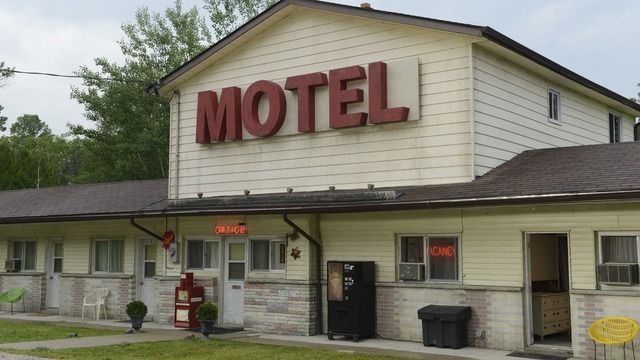
Tip: Use the free app WalletFlo to help you travel the world for free by finding the best travel credit cards and promotions!
Hotels vs Inns
Inn definition:
1.a commercial establishment that provides lodging, food, etc., for the public, especially travelers; small hotel.
2. a tavern.
Inns are interesting because they come in so many different forms and have history dating back to the Romans. During Medieval times, inns were essentially large taverns located near the city gates where tired travelers could also seek lodging, engage in trading, as well as food and drink (and could find a place for their horse as well).
This is why there are taverns and pubs out there that still offer lodging and why some Inns still retain a heavy tavern-esque vibe that you can find in places like the UK. This history makes a lot of inns unique from hotels and is why they can be fun to explore and stay in.
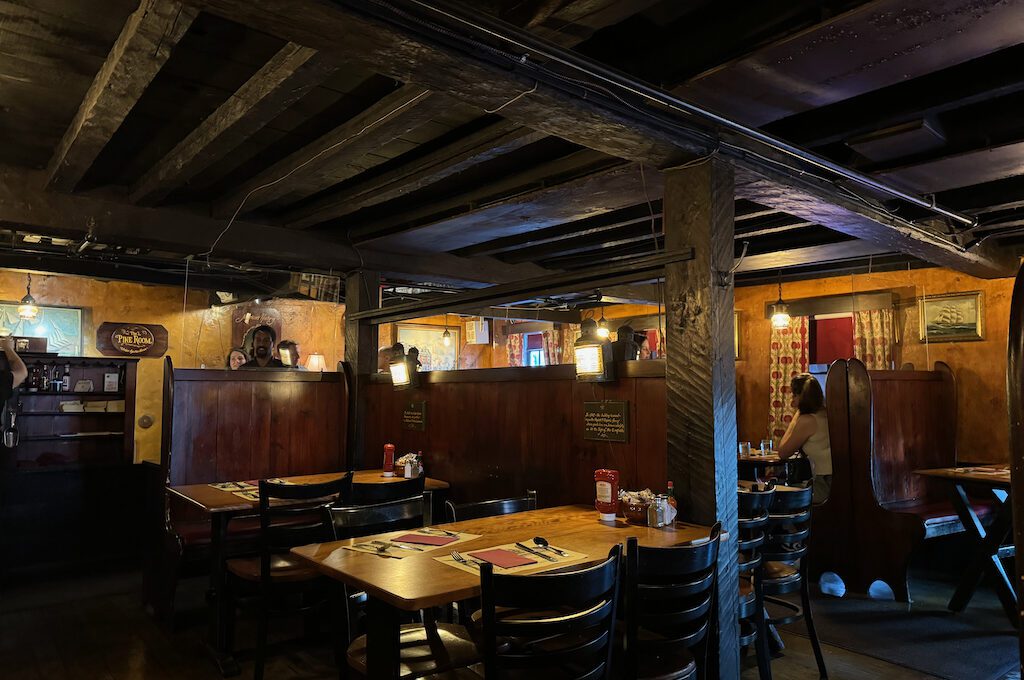
But now many “Inns” are actually motels or even hotels in some cases. For example, Holiday Inns can actually be quite nice and would definitely fall under the hotel category in many cases. Meanwhile, a Knight’s Inn or the hundreds of “Random X Inns” would be considered motels.
In my experience, modern “inns” are basically just disguised motels, and I would generally go in expecting a motel-like experience. (Let’s be real, many motels now refer to themselves as “inns” simply because people hear motel and often think “no thanks.”)
So the key with inns is to look past the name because you could be staying at something that varies dramatically in what it offers.
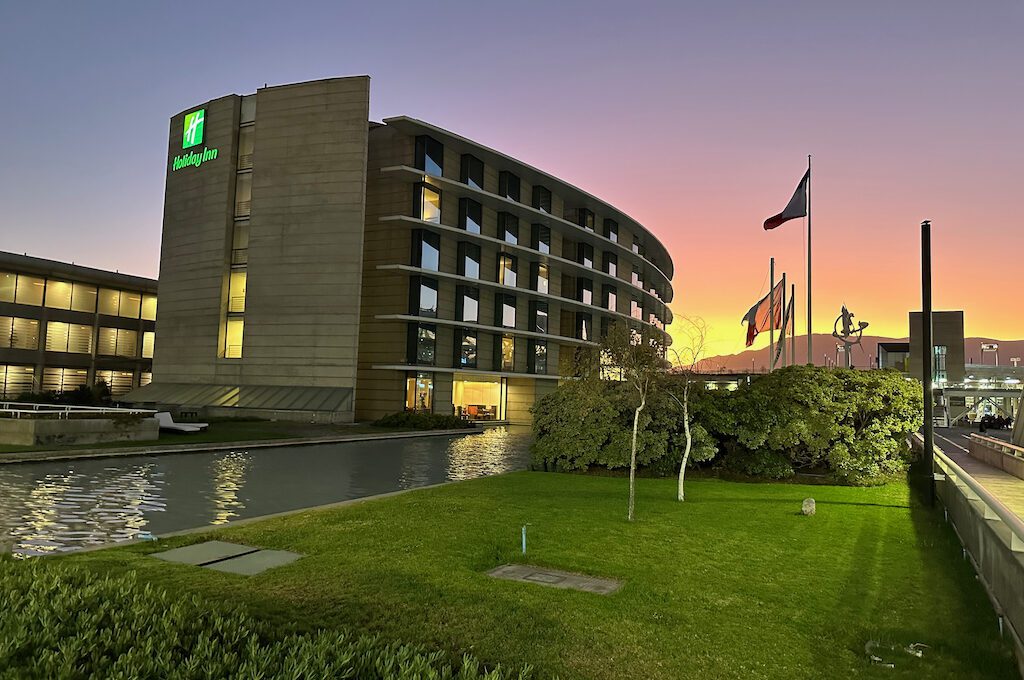
Hotels vs Lodges
Lodge definition
A small, makeshift or crude shelter or habitation, as of boughs, poles, skins, earth, or rough boards; cabin or hut.a house used as a temporary residence, as in the hunting season.
A lodge is usually a type of hotel with all the rustic appeal you could ask for. Lodges often have a rustic appearance and design so that they give off a warm, cozy vibe (think fireplaces, wood frame, stone facades) versus a modern or commercial vibe you might get a hotel (think glitzy lobbies, sterile hallways, etc.).
Lodges generally don’t have as many floors as hotels and if they are larger, they might have several different buildings on the premises. They may or may not have elevators.
It’s not uncommon to find lodges in absolutely stunning rural areas such as in national parks, state parks, or around lakes, rivers, forests, and especially in mountainous areas (ski areas, etc.). You might also find them at other locations like golf courses.
Lodges don’t have to be basic — there is definitely such a thing as a luxury lodge. Some may offer some very nice amenities such as spas and or fantastic restaurants offering local cuisine. Luxury lodges can get very expensive, especially in peak season.
But there are also lodges that are more like cabins with very basic amenities. You may not have air conditioning though you should have electricity and running water. Wifi at lodges can be spotty sometimes due to the their remote location, though things have probably gotten better in the past few years.
Typically, the location where the lodge is located is the big draw versus the lodge itself. You’ll likely be heading to that place for the outdoor activities and scenery.
For that reason, lodges often have some type of connection with the local area/nature and are often found right in the heart of an attraction like the Chisos Mountains Lodge, located in Big Bend National Park, El Tovar Hotel found in the Grand Canyon, and Glacier Bay Lodge found in Glacier Bay National Park.
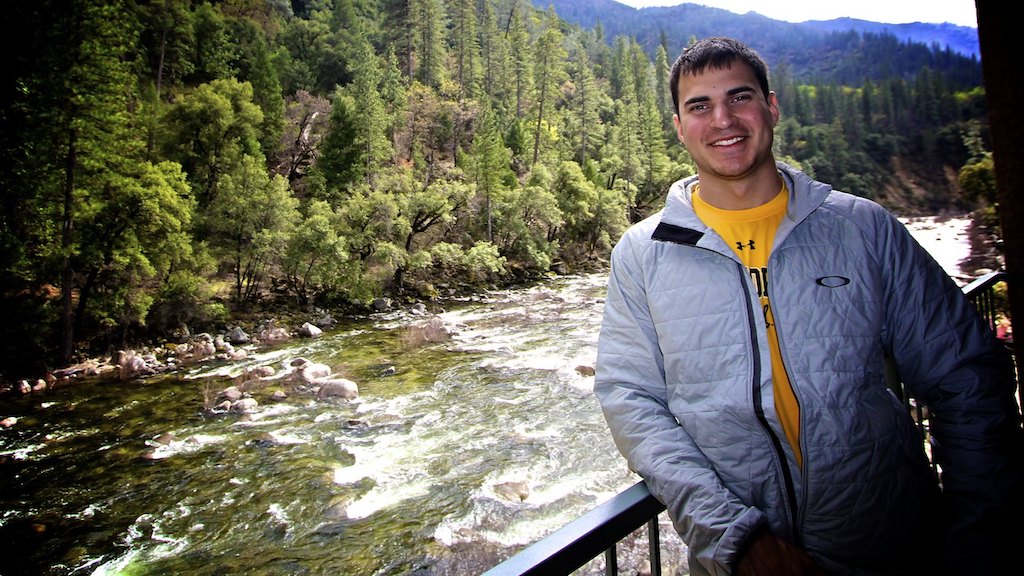
Hotels vs Resorts
Resort definition
A place to which people frequently or generally go for relaxation or pleasure, especially one providingrest and recreation facilities for vacationers:
Resorts are basically mini hotel towns with an array of special vacation/get-a-way oriented amenities and features. Their footprint is usually much larger than your standard hotel and they sort of have their own ecosystem since there’s so much to do on the premises.
You won’t always find business-oriented facilities such as executive lounges at resorts since they cater so heavily to leisure travelers.
Location
Resorts are usually either resort-destinations or found in popular vacation hot-spots (or a combination of both). A ski resort located outside of a major city/town is a perfect example of a resort destination.
Other resorts will be found in tourist hot-spots like Cancun, Mexico. Even at hot spots like this, there is usually enough to do at these resorts to keep you from having to leave the resort if you didn’t want to (though you definitely should try to get out).
These prime locations can mean much higher prices and resorts see higher fluctuations in prices due to peak seasons. In some cases, the price could easily triple or even quadruple for peak season and you might have to book very far out like one year in advance.
Casinos
Many resorts also contain casinos. The casinos might be located with in the hotel but also could be outside and perhaps even shared with another property. These are often open to the public and many casino resorts can be quite striking with beautiful bars and unique amenities like the Marina Bay Sands. You can find casino resorts in places like Las Vegas, Reno, Monte Carlo, Macau, and Singapore.
Pools
Pools are the pulse of resorts in many locations. This is especially true at all-inclusive resorts that have huge pool areas surrounded by hundreds of chairs and day beds and that are equipped with swim-up bars. Compared to hotels, these pool areas are usually larger, nicer, and a place where daily scheduled activities take place.
Spas
Most nice resorts have a spa where you can relax and get massages. Some of these spas are the best in the area and might even open their doors to the public.
Service
Service at resorts can often be better than normal hotels but that’s not always the case. A luxury hotel that caters to business travelers could definitely offer service on-par or better than a resort. It’s just that many resorts seem to do a little bit extra when taking care of you versus a standard hotel. There also is a much larger and diverse staff at a resort versus a standard hotel and some resorts might even offer butler service.
Restaurants
Resorts often have a decent selection of different restaurants to choose from. You might find more upscale options at some resorts like the underwater restaurant at the Conrad Maldives. Prices at resort restaurants can be very high as well.
Shops
Resorts like to get there guests to shop so it’s not uncommon to see larger souvenir shops and jewelry shops and other interesting venues like cigar shops, chocolate stores, etc.. (I try my best to avoid these shops due to their high prices.)
There’s also a focus on tourist activities so you can usually find stations where you can purchase tours and activities. Resorts like to keep you entertained as well so you’ll find more shows and things to do on the premises at a resort than you would with an ordinary hotel.
Some luxury hotels fit the description of all the factors above but when a hotel markets itself as a resort, it’s usually loaded with more amenities suited for leisure/vacation.
Tip: Use WalletFlo for all your credit card needs. It’s free and will help you optimize your rewards and savings!
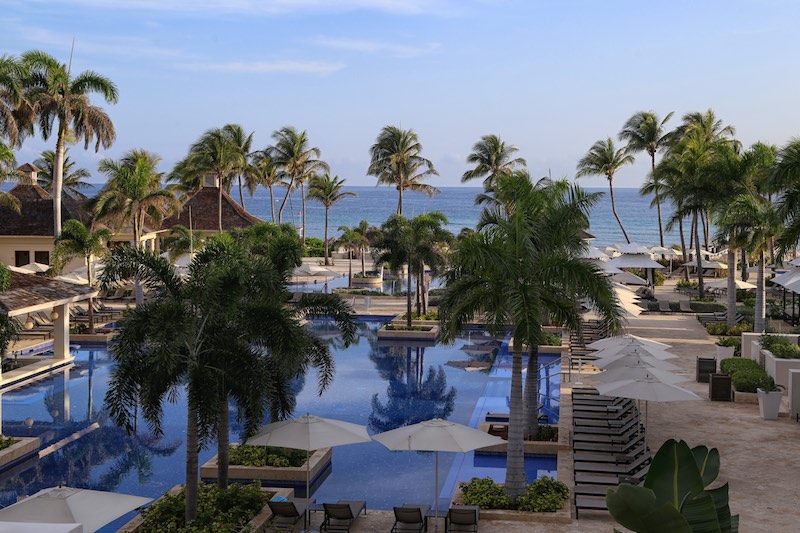
Hotels vs Hostels
Hostel definition
Also called youthhostel. an inexpensive, supervised lodging place for young people on bicycle trips, hikes, etc.
Hostels are low-budget lodging options ideal for social travelers such as backpackers.
These are places where you can really stretch your cash when it comes to your lodging expenses and meet new people. Some make short stays at hostels but it’s not uncommon for people to stay at hostels for several weeks or even months (I once stayed in one for two months).
Hostel lodging can also come in many different forms. Some hostels are glorified barracks where you’ll be sharing a room with a dozen other people in double or triple bunk beds. The rooms may even be co-ed.
Others are closer to a dorm style set up where you may only have a roommate or two or you can find a room to yourself. You may be sharing a bathroom and shower with others or you may have your own bathroom — it all just depends.
A lot of hostels have common areas for socializing (drinking) and even kitchens so you can do some cooking there if you’d like. You can also take care of your laundry at many hostels, too. They might be lacking other amenities like gyms, pools, etc., though.
Some hostels can be party central and a place where people are looking for hook-ups (the building might even be attached to a club or bar). For these reasons, hostels are usually ideal for younger travelers in their early to mid 20s and may not be ideal for families in some cases.
Related: Should You Tip Hotel Housekeeping?
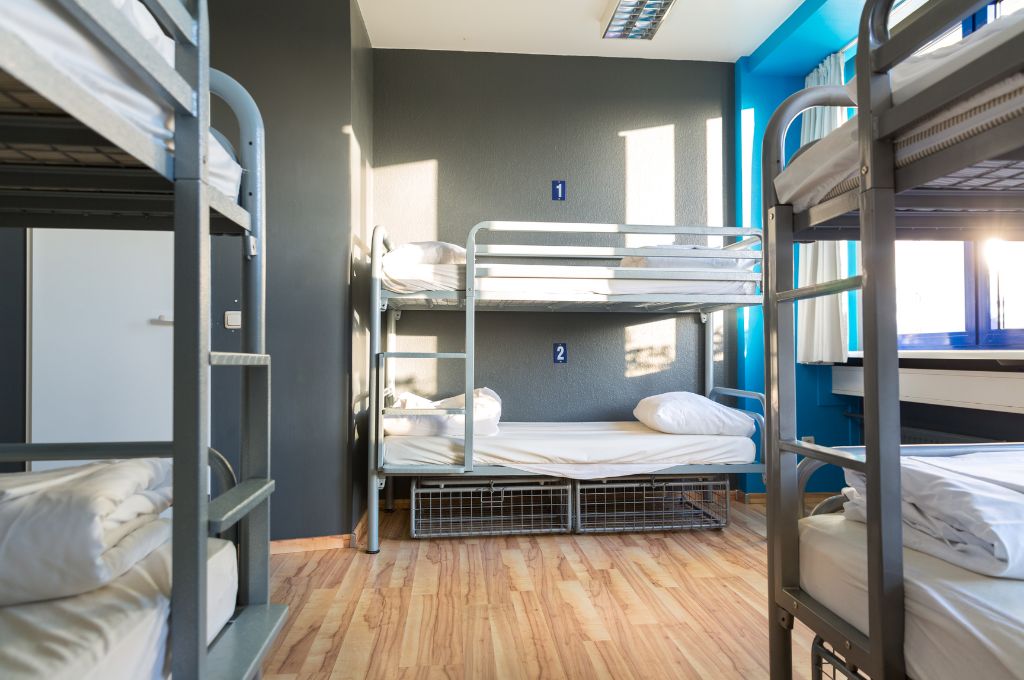
Hotels vs Boutique Hotels
Boutique hotel definition
- a small stylish hotel, typically one situated in a fashionable urban location.
Boutique hotels are small hotels with a lot local character. What a good boutique hotel lacks in size, it makes up for with its charm, uniqueness, and personalized service. Many boutique hotels are housed in historic buildings and in historic areas like the Palazzo Manfredi found right next door to the Colosseum in Rome.
You may only be able to choose from a couple of room types at some but you can often expect a warm and inviting atmosphere at a boutique hotel. At a good boutique hotel, you will feel appreciated and rewarded for taking a chance on it.
Some boutique hotels boast something memorable like a Michelin-starred restaurant or unbelievable views (or both). Much of the food and drink at a boutique hotel may be locally inspired.
The drawback to boutique hotels is that they don’t always have the facilities like gyms, pools, lounges, etc. Therefore, they are not always ideal for long stays. Boutique hotels don’t always have loyalty programs but some do belong to networks the like the Relais & Châteaux that comes with the Chase Sapphire Reserve.
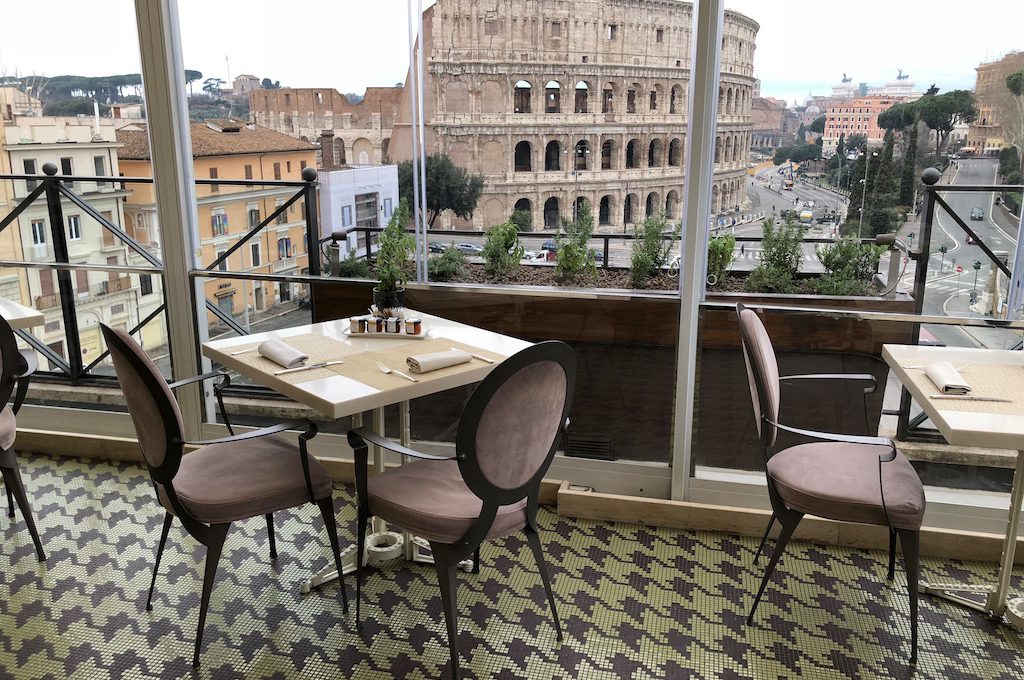
Hotels vs BnBs
BnB definition
Sleeping accommodations for a night and a morning meal, provided in guest houses and small hotels.a guest house or small hotel offering sleeping accommodations and a morning meal.
You also might be wondering about hotels vs B&Bs. Like inns, B&Bs have a very long history dating back several hundred/thousand years. In the US, it wasn’t uncommon for people to open up their dwellings to travelers such as pioneers to give them a place to rest.
Over time, B&Bs (or as they were called “tourist homes”) served a similar purpose as motels, providing lodging to those traveling along the roadways. They also allowed people to make a little extra on the side during the Great Depression but they sort of fell out of style as the economy got better and motels became more popular.
However, over the past couple of decades B&Bs have become more popular in the US and now many of them are quite luxurious.
A traditional bed and breakfast is going to be smaller than a typical hotel and might be located in a more quaint dwelling (a guest house or residence). These will usually only have a hand full of rooms but as you can tell from the name, they will supply you with breakfast.
BnBs offer a more intimate experience than a hotel since you can connect with a host do things like share your breakfast experience with other guests. And as mentioned, many BnBs can be very luxurious and they can be found in both cities and rural areas.
The drawback to BnBs is the same as boutique hotels expect it will be even less common for you to find certain facilities at your house.
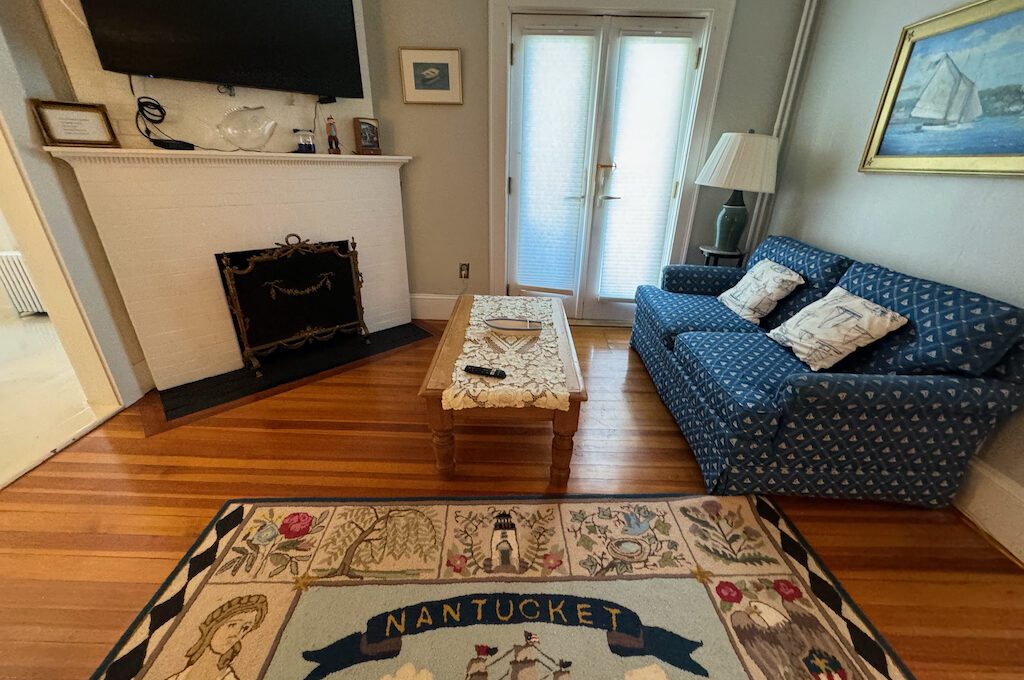
Final word
There are a lot of different types of lodging available to choose from. Sometimes the difference between lodging types is only in the name but other times there are very real and noticeable differences between options like hotels and motels. Hopefully, this article helped you to better understand some of the differences between the lodging types.
Daniel Gillaspia is the Founder of UponArriving.com and the credit card app, WalletFlo. He is a former attorney turned travel expert covering destinations along with TSA, airline, and hotel policies. Since 2014, his content has been featured in publications such as National Geographic, Smithsonian Magazine, and CNBC. Read my bio.

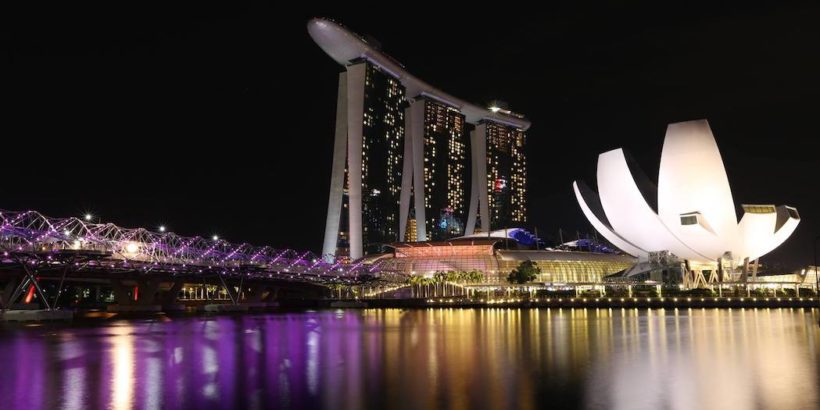
I found it beneficial when you said that bed and breakfasts were called tourist homes back in the day. My girlfriend and I want to do a weekend vacation soon and we’re thinking of staying at a bed and breakfast. We’ll have to find a place that is cozy and relaxing for the weekend.